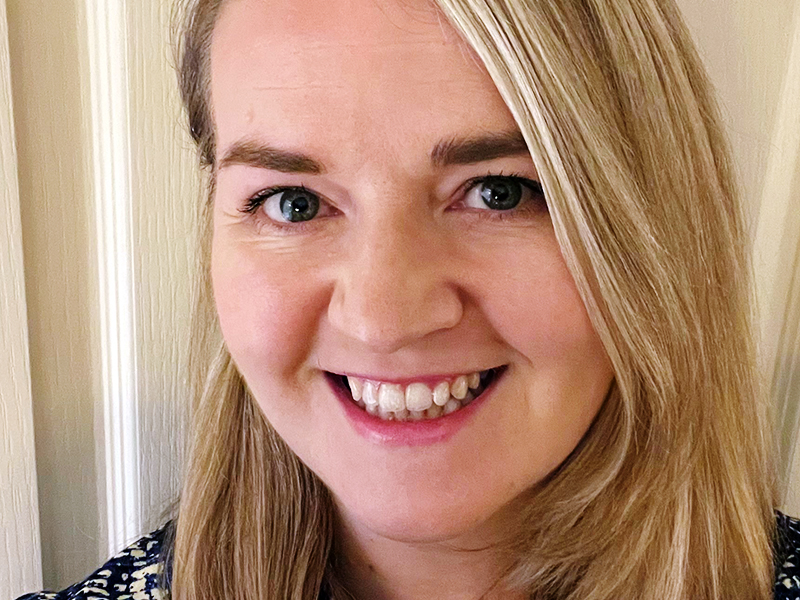Why men need to start talking about eating disorders
One in four people who have an eating disorder in the UK are men.
However, there is still huge misunderstanding about who can be affected by these serious mental illnesses, which can make it difficult for men to realise they are unwell. For Eating Disorders Awareness Week 2023, at Beat we wanted to raise awareness of the stigma that men with eating disorders face, help to break harmful stereotypes, and encourage men to reach out for support.
As part of this, we carried out the UK’s largest survey of men with eating disorders, including men based in Scotland. Alarmingly, we discovered that over half of men with eating disorders have never received treatment. Of those who have never received treatment, one in three have never asked for support.
Many men we surveyed in Scotland said that they worried how others would react if they found out about their eating disorder. Others said that they hadn’t recognised that they needed eating disorder treatment, that they felt they “should” be able to recover on their own, or that they didn’t know what support was available.
We also found that seven in 10 men had never heard about another man with an eating disorder, before they became unwell themselves. Several men in Scotland mentioned that stories about men with eating disorders ‘seemed to be the exception as opposed to the rule', which made it much more difficult for them to realise that they were unwell.
Why is this a problem?
It’s very worrying that men, through no fault of their own, haven’t been able to access the support that they need. At Beat, we know that the sooner somebody starts eating disorder treatment, the better their chances of making a full recovery. Delays to treatment can worsen eating disorder behaviours which can make people much more unwell, which is why it’s crucial that every person knows who they can contact if they are worried about their mental health.
Talking openly about eating disorders can feel incredibly difficult, and it can take a long time for people to reach out to somebody about how they are feeling. This is especially true for men, who face the harmful misconception that eating disorders only affect women and girls. This stigma worsens feelings of shame and guilt and can make it even more difficult for men to reach out for support.
It’s deeply unfair that in 2023, despite all that has been done to raise awareness of men’s mental health, men with eating disorders are still facing barriers to accessing the support they need.
How can I help?
This Eating Disorders Awareness Week, we are asking everybody in Scotland to get talking. You may have noticed that a friend or family member seems different lately – they might appear anxious at meal times or seem to be fixated on their diet or exercise. Or maybe you have spotted food unexplainably going missing, or that someone close to you is having difficulty concentrating or seems more irritable. Reaching out to that person could be the first step of their recovery, which is why it’s crucial to keep an eye out for warning signs.
There is no ‘right’ way to reach out to the person you’re worried about. But in general, allowing them to speak openly, reminding them that you’re there to support them, and encouraging them to speak to their GP are great places to start. Choosing a time when you won’t be distracted, such as on a short walk, drive or during a phone call can also help people feel more comfortable opening up and enable the conversation to flow more easily.
Where can men access support?
Men should never have to suffer in silence. If anybody is reading this who feels they may have an eating disorder, we’d like to reassure you that there is nothing to be ashamed of. Eating disorders are treatable and recovery is possible – please reach out as soon as possible to get the support that you deserve.
About Beat: Beat is the UK’s eating disorder charity. Beat supports anybody affected by an eating disorder through its helplines, online support groups, and online web chats. Beat also helps those who are caring for a loved one with an eating disorder.
If you’re worried about your own or someone else’s health, you can contact Beat 365 days a year on their Scottish helpline at 0808 801 0432 or via [email protected], between 9am till midnight on weekdays, and 4pm till midnight on weekends and bank holidays.
Beat has also launched a new online support group, Osprey, to provide a safe space for men to explore their experiences of disordered eating: https://www.beateatingdisorders.org.uk/get-information-and-support/get-help-for-myself/i-need-support-now/online-support-groups/mens-group/
Interesting in sharing your story? Sharing your personal experience with eating disorders is a brilliant way to raise awareness and help others to spot the signs. Beat is always keen to hear from people who have recovered from eating disorders - you can look at their volunteering and campaigning opportunities here: https://www.beateatingdisorders.org.uk/support-our-work/
Kirsty Pavey is Beat’s national lead for Scotland and is based in Edinburgh.







